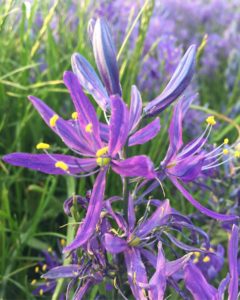I’ve been thinking a lot about ethical wildcrafting lately and thought I would discuss it here before sharing any more information on harvesting plants out in the world. Here are some best practices for harvesting:
- Harvest plants that are in abundance, especially common invasive weeds (e.g. common plantain, dandelion, curled dock).
- Do not overharvest. I’ve heard people say that when you are harvesting you should be moving – if you have spent too long in one spot, you are probably harvesting too much. Some people use percentages (e.g. harvest only 5% of the plants in a certain area), but I think that it really depends on the context of what you’re harvesting, how plentiful it is, how fast it grows, etc.
- Do not harvest rare or sensitive species. Every year BC publishes a red list of species that are endangered. When I find a plant I’m not sure about, I ID it and do some research.
- Harvest correctly. To minimise damage to the plant, it is important to harvest using correct techniques and appropriate tools. A clean cut in the correct spot is easier for a plant to heal from. If you harvest correctly, you can actually be doing a service to the plants – there has been research that shows moderate harvest over years can increase plant biomass.
- Tread lightly. Stick to paths as much as possible and avoid trampling sensitive vegetation. Go by yourself or with one or two other people and leave no trace.
- Ask permission. To those of us who are just starting out on this path, seeking permission from a plant can be a foreign concept. Robin Wall Kimmerer explains it well in her book Braiding Sweetgrass: introduce yourself, explain your intention, and ask the plant to share. By respecting the plant in this way you are not only slowing down to evaluate the population health, you are also reigniting your kinship with the plant. You will receive the answer intuitively and as you take in the condition of the plants.
- Leave an offering. To honour your reciprocal relationship with the natural world, it is good practice to leave an offering to the plants. This could be a traditional offering of tobacco, cedar, or sage, or an act of gratitude – a song, water, a prayer…


